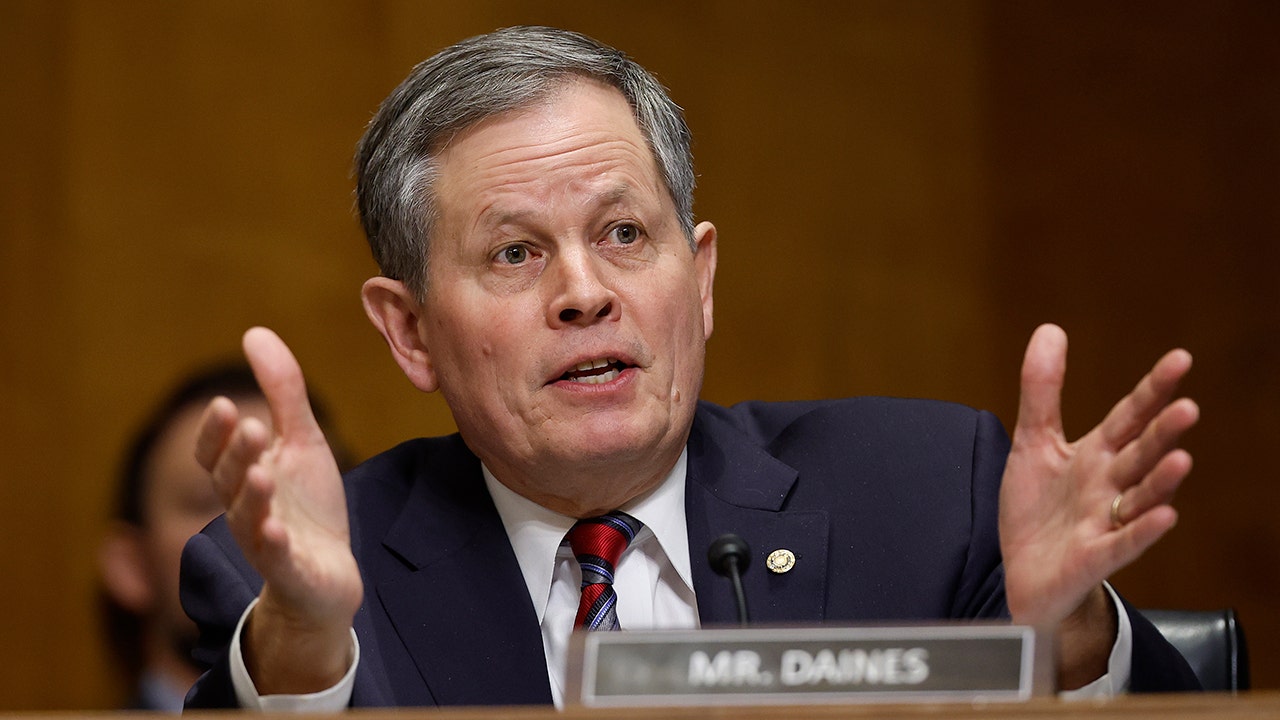GOP senator calls regime change long-term solution for Iran-Israel peace

A fragile ceasefire between Iran and Israel has sparked discussions about the long-term solution to the ongoing conflict in the region. Senate Republican, Sen. Steve Daines, believes that regime change in Iran is the key to achieving lasting peace and stability.
The truce between Israel and Iran was established late last month, following 12 days of intense fighting that began with Israeli strikes on Iranian targets. The conflict escalated to a U.S. strike on Iranian nuclear sites, authorized by President Donald Trump. While the ceasefire has brought a temporary halt to the violence, Sen. Daines remains cautious about its sustainability, citing Iran’s deep-seated aggression towards Israel.
Sen. Daines, who serves on the Senate Foreign Relations Committee, emphasized the importance of a regime in Iran that recognizes Israel’s right to exist and does not seek its destruction. He expressed concern that without a regime change, the peace in the region may be short-lived.
The Senator’s stance aligns with a bipartisan effort to support Israel, with Reps. Mike Lawler and Josh Gottheimer pushing for additional military aid. However, most lawmakers, including Sen. Daines, are hesitant to endorse U.S. intervention in regime change operations.
Reflecting on past interventions in Iran during the 1950s and the 1979 Islamic Revolution, Sen. Daines stressed the need for internal change within Iran. He cautioned that regime change is a risky endeavor but emphasized the potential for a more favorable outcome that aligns with Western values.
Sen. Daines highlighted the importance of Iran aligning with the West for long-term prosperity, rather than fostering alliances with adversarial nations. He underscored the significance of a regime that prioritizes peace and cooperation with Israel and the Western world.
In conclusion, Sen. Daines emphasized that a ceasefire is merely a temporary measure and that lasting peace hinges on Iran’s recognition of Israel’s legitimacy as a Jewish state. He warned that failure to achieve this could leave Iran as a persistent threat, potentially leading to future conflicts and security risks for both Israel and the United States.
The discussions around regime change in Iran underscore the complex dynamics at play in the Middle East and the challenges of achieving a stable and peaceful resolution to longstanding conflicts. As policymakers navigate these complexities, the quest for lasting peace remains a top priority for all stakeholders involved.




